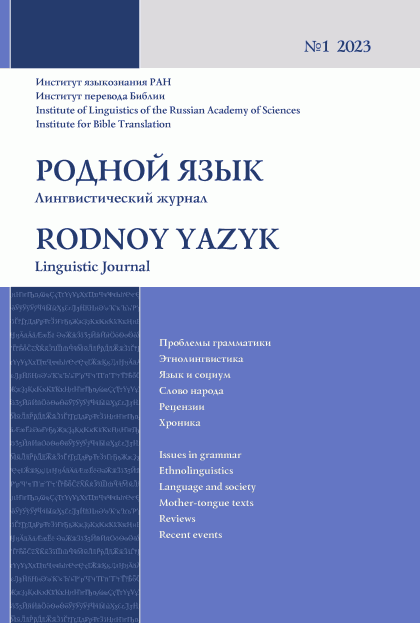Issue 1, 2023
Published online: 30 June 2023, 18:45
Contents
Issues in grammar
Prospective constructions in the Sakha language
Ethnolinguistics
The designations of heavenly bodies in the minority Iranian languages of the Pamir-Hindu Kush area.
Language and society
The case of the Ural Maris
Mother-tongue texts
Shughnani translation of Wilhelm Hauff’s fairy tale “Little Muck”
A Selkup family legend about a great shaman
Reviews
[Review of:] Abukaeva L. A., Chemyshev A. V., Mitruskova A. A. A dictionary of epithets
DOI: 10.37892/2313-5816-2023-1-169-174
Recent events
5th Saami Linguistics Symposium (SAALS-5)
International scholarly conference on “The Saami languages of Russia: Synchrony and diachrony”
Rodnoy Yazyk 2023, 1
Editorial Board and Editorial Council
Editorial Board
- T. B. Agranat (editor-in-chief)
- A. N. Bitkeeva
- D. Erschler
- K. T. Gadilia
- К. D. Harrison
- M. Sh. Khalilov
- T. A. Maisak
- O. A. Mudrak
- Yu. V. Psyanchin
- M. Rießler
- E. L. Rudnitskaya
- A. Viaut
- V. Voinov
- L. Whaley
- T. Wier
Editorial Council
- V. M. Alpatov
- M. Beerle-Moor
- A. V. Dybo
- F. G. Khisamitdinova
- A. A. Kibrik
- M. I. Magomedov
- G. Ts. Pyurbeev
- M. Z. Ulakov
Rodnoy Yazyk 2023, 1
